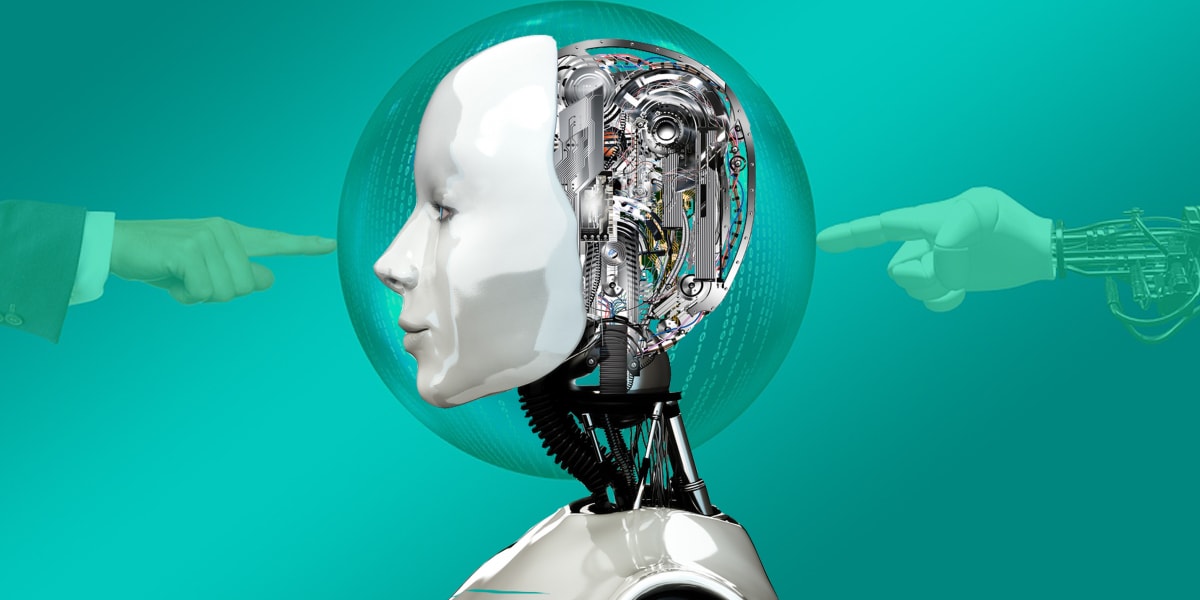- Panacea
- Artificial Intelligence
- 24th October 2017
How Could Artificial Intelligence Drive Enhancement for Mobile App Development?
Artificial intelligence (AI) is quickly becoming one of the most popular topics in both science and business and other leading mobile app development companies are showing interest in AI investment. Google’s DeepMind is the best example of mainstream AI application. Google has invested around $400 million in this AI-based project. A study conducted by one of the famous research institutes revealed that tech leaders, for instance, Baidu and Google spent between over $25 billion on AI last year. To be more precise, they have spent 90% of the budget on R&D and deployment while 10% on AI acquisitions.

However, AI applications are not just limited to digital assistants like Siri. Actually, they can be implemented for different purposes such as ecommerce security. These days, many businesses are focusing to develop AI app to transform customer experience to a whole new level.
Basic Concept of Artificial Intelligence
Recently many companies are utilizing AI-powered tools or software to actively engage and ultimately retain their users. But what is it exactly? Well, AI is an umbrella term that involves capabilities like machine learning and vision, language processing, knowledge management, and more. To explain in it simplest way- AI is a machine with the ability to copy intelligent behavior. AI has unending possibilities, however, within the context of mobile app development, it can be implemented using context-aware sensors or chatbots.
What are the Best Tasks for AI in Mobile App Development?
Neural networks are not the valid solution for everything, however they best at dealing with complex data. Many times applying AI in mobile applications is still related to the inclusion of personal assistants. But there is a larger perspective to that – AI is used to analyze and study our habits inside of various apps and better serve us. App developers and marketers are now closer to understanding user behavior on the app through different actions such as preferences, like purchases, and more. Deep Learning is the science to ‘teach’ the machines identify patterns and then relate these ‘learnings’ to figure out various complex queries. It also allows learning behavior patterns of users in order to make the future sessions personalized and seamless.
Another feature that takes a significant place in mobile app development is sentiment analysis used for app analytics. For instance, Appbot offers its users with a useful piece of information as sentiment analysis of app reviews from Google Play Store and Apple’s App Store. It can be used to gain an understanding of the emotions, attitudes, and opinions (positive, negative, or neutral) expressed by users. This understanding of the customer allows providing the most relevant content and features.
Major Use Cases For Applying AI in Mobile Apps Could be Identified as:
Automated Reasoning: In this scenario, computers/machines are designed in such way to apply effective logical reasoning skills to solve problems. For example, to solve puzzles or to prove mathematical theorems. By applying automated reasoning machines are trained AI machines to beat humans at Jeopardy, chess, stock trading, etc. Moreover Uber uses this method to optimize routes and get the passengers to their destinations faster.
Recommendation Services: It is the most effective and simplest AI-based mobile apps that can be utilized in almost every solution. The reason why most apps fail within a year of launch is that they fail to provide relevant content to frequently engage customers. You may be delivering fresh content but if it is not something that is interesting to the end user then it is not worth the time you spend creating it. Recommendation AI services monitor the choices users to make content and insert the gathered data into a learning algorithm. It will help apps to make recommendations based on user’s likes and dislikes. These types of applications are a powerful source of revenue. For instance, entertainment app like Netflix. Yet any business that up sells or cross-sells content can utilize this type of AI, even if it’s currently a manual process handled by the sales or marketing team.
Learning Behavior Patterns: Most platforms have the ability to learn users’ behavior patterns to make the next session easier. For example, Snap-travel is a half-human and half-bot hotel booking service. It uses machine learning and natural language processing to have real-time conversations with customers suited to their choices. If a user deceives the bot with a request, a human agent intervenes and educates the bot how to not make the same mistake next time. Another best example of AI learning is fraud detection for online payments. Pattern-detecting algorithms go through your credit card statements and purchases as they happen, and can detect if you’ve made a recent purchase out of the norm of your behavior.
The growth of AI is bringing new possibilities for Android and iOS application development. Started with the Apple’s personal assistant Siri, it has a lot of potentials to advance in upcoming years. Thus, if you have AI-based application development requirement, Panacea Infotech is always ready to help you. We have a team of developers who are well experienced with the latest technology available in the market.

